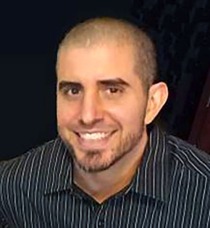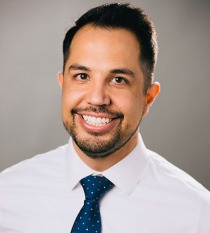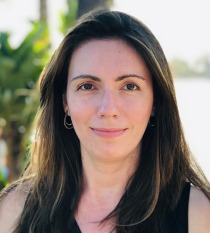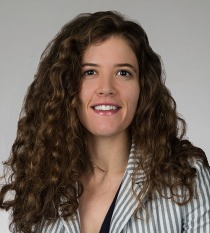What’s New at NIDA
NIDA Diversity Scholars Travel Award Program
In person conferences have started back up! The National Institute on Drug Abuse (NIDA), Office of Diversity and Health Disparities (ODHD) travel award program has been on a two-year pandemic hiatus but, with the resumption of in-person national meetings, has begun accepting applications for the NIDA Diversity Scholars Travel Award Program to help defray the costs of attending national scientific conferences. We have awarded travel awards for the College on Problems of Drug Dependence (CPDD) and the American Psychological Assoction (APA) conferences and would like to congratulate those awardees. But there is still time to apply for other 2022 Travel Awards to the National Hispanic Science Network (NHSN) International Conference and the Society for Neuroscience (SfN) Meeting. Please see the application for more information and consider sharing with anyone who may be interested. Scientists from underrepresented backgrounds are encouraged to apply, though individuals from all backgrounds are eligible to participate.
Apply for a travel award to any of the below scientific conferences:
- The National Hispanic Science Network International Conference (NHSN) on September 28th – 30th, 2022 in Grand Rapids, MI; Deadline to apply: June 28th, 2022.
- The Annual Society for Neuroscience (SfN) Meeting on November 12th – 16th, 2022 in San Diego, CA.; Deadline to apply: August 12th, 2022.
Please reach out to Julie Huffman (Julie.Huffman@nih.gov) if you have any questions.
NIDA Diversity Scholars Travel Award Program application
Approved NIDA Racial Equity Initiative Concepts
NIDA has several concepts that were developed by the NIDA Racial Equity Initiative team and approved by the National Advisory Council on Drug Abuse earlier in 2022. A concept describes the purpose, scope, and objectives of a potential funding opportunity announcement. Concepts are posted to give interested researchers additional time to plan for application submissions. Approved concepts are usually developed into Requests for Applications (RFAs), Program Announcements that include set-aside funds (PASs), or Program Announcements with special receipt, referral and/or review considerations (PARs). While these are not currently funding announcements, this public information gives an indication of important research areas that are of current interest to NIDA. If/when they are developed into funding announcements, they can be found on our website under NIDA Funding Opportunities and published in the NIH Guide.
Approved NIDA Racial Equity Initiative Concepts:
- Addressing Racial Equity in Substance Use and Addiction Outcomes Through Community-Engaged Research
- Avenir Award for Research on Racial Equity
- Neurocognitive Mechanisms Underlying the Impact of Structural Racism on the Substance Use Trajectory
- Center to Support Research on Racial Equity and Health Disparities
- Training and Diversifying the Data Science Workforce for Addiction Research
- Reaching Equity at the Intersection of HIV and Substance Use: Novel Approaches to Address HIV Related Health Disparities in Minority Populations
- Leading Addiction, Diversity, and Discovery in Education and Research (LADDER)
- Research Opportunities for New and At-Risk Investigators to Promote Scientific Workforce Diversity
Full list of NACDA-approved Concepts
Congratulations to Fellowship (F) Awardees in Fiscal Year 2022!
We would like to congratulate the awardees of NIDA Fellowships (F) awards in Fiscal Year 2022! The goal of these programs is to provide individual research training opportunities (including international) to trainees at the undergraduate, graduate, and postdoctoral levels. See below for a full list of active NIDA F award recipients from NIH RePORTER.
For more information on NIDA Funding Opportunities, visit the Funding Opportunities at NIDA webpage. For a full list of NIH training, fellowship, career development, and research education funding opportunities including parent announcements, please visit and subscribe to the NIH Guide to Grants and Funding.
Career Development Spotlight: Tamara Taggert

Dr. Tamara Taggart received her PhD in Health Behavior from The University of North Carolina, Chapel Hill, and her MPH from Columbia University. She completed a postdoctoral research fellowship at Yale University in the Center for Interdisciplinary Research on AIDS. Currently, she is an assistant professor in the Department of Prevention and Community Health at George Washington University Milken Institute School of Public Health, and an adjunct assistant professor in the Department of Social and Behavioral Sciences at Yale School of Public Health.
Dr. Taggart’s research uses community-based quantitative and mixed-methods approaches to investigate social-structural and cultural factors associated with health inequities in HIV prevention and treatment, as well as in substance use among adolescents and young adults. She has been awarded several competitive grants and fellowships, including the NIDA Diversity Scholars Network Fellowship in 2018 and the NIDA HIV/AIDS, Substance Abuse, and Trauma Training Program through the University of California, Los Angeles in 2016.
- What made you decide to pursue science? I have always been interested in the human body and how social conditions influence health. I was introduced to science at an early age through classroom activities, summer camps, and honors programs. I also grew up around family members who were scientists and worked in health care. These experiences, along with my career goals, led me to pursue public health science.
- What’s your favorite part of the research that you do? Connecting with community partners and translating research findings into practice. I learn so much from these partnerships and can see how I have become a stronger researcher and public health advocate because of them.
- Can you highlight your recent grant success? I recently received two R01/R01 equivalent awards as an MPI. 1) Dr. Nisha Gottfredson and I (UNC-Chapel Hill; MPI) were awarded an R01 from the National Institute on Drug Abuse (NIDA) entitled "Measuring the impact of structural racism and discrimination during adolescence on substance use, psychological distress, and criminal justice outcomes in adulthood". This study focuses on measuring the consequences of adolescent exposure to structural racism and discrimination within neighborhoods and school and peer networks on interactions with the criminal legal system, mental health, substance use, and treatment-seeking in adulthood. The investigators aim to gather evidence on different structural leverage points such as community resilience factors to improve future interventions serving adolescents and young adults living in rural North Carolina. 2) I along with Dr. Jonathon Rendina (Whitman-Walker and GW; MPI) received a $10M award from the National Institute of Allergy and Infectious Diseases (NIAID) for the Limited Interaction Targeted Epidemiology (LITE-2): To Advance HIV Prevention. The 5-year project, entitled, "Multilevel strategies to understand and modify the role of structural and environmental context on HIV inequities for sexual and gender minorities of color" will support the development of a new cohort of approximately 5,500 Black, Latino/a/x, and Multiracial sexual and gender minorities across the nation. The project will feature a Scientific Advisory Board, a Community Partnership Group, and a Policy Working Group that will work to develop new quantitative metrics of state-level structural racism and anti-LGBTQ stigma.
- What impact did participating in the NDSN program have on your career? NDSN was a fantastic experience for me. It provided detailed information on how NIDA/NIH funding works (from an "insider" perspective)--process, metrics, identifying funding opportunities, and communicating with NIH; it helped me expand my mentoring network to other key people in my field; and I learned so much from the grant review portion--hearing a study section discuss my grant using NIH criteria was priceless. I recommend the program to everyone I know as it is such an important and unique resource.
- What advice do you have for young scientists? Connect to your "why" and align your training and goals to that why. Sometimes you have to work backwards--ten years from now, what do you want to do and carefully map how you will get there. Lastly, develop and refine your mentoring team early and often. Never rely on only one or two people to help you; build a mentoring team.
NIDA Diversity Scholars Network Professional Development Workshop (Part I)
The following Scholars have been selected to participate in the upcoming National Institute on Drug Abuse (NIDA), Office of Diversity and Health Disparities (ODHD) 2022 NIDA Diversity Scholars Network (NDSN) Program. They recently attended the NDSN Part 1 virtual workshop that took place on May 25th, 2022. The NDSN is a rigorous and comprehensive mentorship program aimed at improving the funding of outstanding underrepresented early-stage minority investigators in substance abuse research. This meeting was the second of a three-part series that will support a cohort of scholars in gaining research grant or equivalent funding in order to build a sustainable independent research career.

Joy Scheidell, Ph.D., M.P.H.,
New York University Grossman School of Medicine
Sandra Springer, M.D.
Yale School of Medicine
“Drug Treatment as Disease Prevention: Reducing Sexually Transmitted Infection Risk among Women Who Use Drugs”

Tamera D. Hughes, Pharm.D., Ph.D.
UNC Eshelman School of Pharmacy
Allison Ober, Ph.D.
Center for HIV Identification, Prevention, and Treatment Services
“Identifying Gaps in Access to Pharmacy-based Harm Reduction Services and the Implications of Such Gaps”

David Hoskins, Psy.D., M.A.S.
University of California, San Francisco (UCSF) Children’s Hospital
Katherine Keyes, Ph.D., M.P.H.
Columbia University
“Caregiver–Child Separation, Mental Health, and Substance Use: Improving Measurement for Asylum-Seeking Youth with an Adapted Pediatric ACEs and Related Life-Events Screener Protocol: PEARLS-A”

Rachel Hoopsick, Ph.D., M.S., M.P.H., MCHES
University of Illinois Urbana-Champaign
Seth Prins, Ph.D., M.P.H.
Columbia University
Substance Use among Healthcare Workers: A Socioecological Perspective

Verlin Joseph, Ph.D.
University of New Mexico
Emily Williams, Ph.D., M.P.H.
University of Washington
“Refining the Measurement and Assessment of Stigma and Discrimination Among People Who Use Opioids”

Raymond Moody, Ph.D.
Columbia University Mailman School of Public Health
Carrie Oser, Ph.D.
University of Kentucky
“Stigma, Drug Use, and HIV Vulnerability Among Hispanic and Latino Sexual Minority Men”

Deena Kemp, Ph.D.
University of Texas at Austin
School of Advertising and Public Relations
Elizabeth Klein, Ph.D., M.P.H.
Ohio State University
“Disgust, Repetition and Health Persuasion: Using Eye Tracking to Examine Longitudinal Changes in Adolescent Responses to Hard-hitting Antivaping Ads”

Pricilla Dib Goncalves, Ph.D.
Columbia University
Linda Chang, M.D.
University of Maryland
“Executive Function and Impulsivity as Predictors of Alcohol/Cannabis Co-Use in Adolescence: A Longitudinal Study”

Joyonna Gamble-George, Ph.D.
Yale University School of Public Health
Krista M. Lisdahl, Ph.D.
University of Wisconsin
“Genetic and Neural Correlates of Social Connectedness in Substance Use During the Transition from Adolescence to Young Adulthood”

Kathleen Isabel Crum, Ph.D., HSPP
Indiana University School of Medicine
Tara Chaplin
George Mason University
“Youth Neuroimaging Genetics of Parental Substance Use Disorder and Traumatic Stress”
2022 NIDA Summer Research Internship Program
This year NIDA had another successful start to the Summer Research Internship Program. The NIDA Summer Research Internship Program provides paid internships to support undergraduate students with a focus on increasing underrepresented populations in substance use and addiction-related research. Through this program, undergraduate students aged 18 years and older are introduced to the field of substance use and addiction research by participating in research internships with NIDA’s distinguished scientists at universities across the United States. Students work with leading addiction scientists for eight weeks during the summer. The internship may include laboratory experiments, data collection, data analysis, formal courses, participation in lab meetings, patient interviews, manuscript preparation, library research, literature reviews, and more. In addition, each intern will deliver a formal presentation on his/her research project at the end of the internship. Below are the names of the 84 selected interns with their assigned mentors and internship site. We wish them all a productive internship.
- 2022 NIDA Summer Research Interns and Mentors
-
Intern Intern University Mentor Mentor University Fatema Alam Macaulay Honors College / Brooklyn College Tamara Sussaman, Ph.D. Columbia University Dora Ambroise Boston University Nicole Petersen, Ph.D. University of California Los Angeles Shane Appiah Howard University Justin Knox, Ph.D. Columbia University Jude Baffoe-Bonnie Temple University Rong Chen, Ph.D. University of Maryland School of Medicine Kasum Basnet University of California Los Angeles Steven Shoptaw, Ph.D. University of California Los Angeles Domenica Bedon Texas A&M University Catalina Lopez-Quintero, Ph.D. University of Florida Daniela Bengoa Tulane University Moriah Thomason, Ph.D. NYU Langone Grossman School of Medicine Rachel Berenshteyn CUNY Hunter College Adam Carrico, Ph.D. University of Miami Edoardo Nicholas Bianchi Brooklyn College Julie McCarthy, Ph.D. McLean Hospital/Harvard Medical School Gabriella Brady Allegheny College Alexander Smith, Ph.D. Medical University of South Carolina Beverly-Danielle Bruno Boston University Roman Shrestha, Ph.D. University of Connecticut Isabella Campa University of California San Diego Ateev Mehrotra, M.D., M.P.H. University of California-San Diego Quyen Cao Emory University Laurie Wakschlag, Ph.D. Northwestern University Danielle Chaput Eastern Connecticut State University Martin Teicher, MD, Ph.D. McLean Hospital/Harvard University Janiya Cherry Prairie View A&M University Oluwaseun Falade-Nwulia, MBBS, M.P.H. Johns Hopkins University Maney Darby Jackson State University Tamika Zapolski, Ph.D. Indiana University Purdue University Indianapolis Ethan Dennis University of Arkansas Lisham Ashrafioun, Ph.D. University of Rochester Dhruvi Desai Rutgers University David Barker, Ph.D. Rutgers University Reshika Sai Devarajan Northeastern University R. Kathryn McHugh, Ph.D. McLean Hospital Emily Ernst St. Catherine University Brian Feinstein, Ph.D. Rosalind Franklin University of Medicine and Science Bethany Fletcher Willamette University Tamara Richards, Ph.D. Oregon Health & Science University Morgan Frederick Florida Atlantic University Honors College Hansel Tookes, M.D., M.P.H. University of Miami Hector Martin Gamez University of Arizona John Streicher, Ph.D. University of Arizona Sara Gebeyehu Loyola University Chicago Ricky Bluthenthal, Ph.D. University of Southern California Caroline George Temple University Debra Bangasser, Ph.D. Temple University Elizabeth Gilson University of Washington Zhicheng Lin, Ph.D. McLean Hospital Jessica Girard University of Florida Sean M. Murphy, Ph.D. Weill Cornell Medicine Alexa Granados The University of Texas at San Antonio Joseph Palamar, Ph.D., M.P.H. New York University Langone Medical Center Trinity Gray Norfolk State University J. Douglas Bremner, M.D. Emory University Nicolle Gudiel Winter University of Massachusetts Amherst Lori Knackstedt, Ph.D. University of Florida Megan Guinan University of California Santa Barbara Davida M. Schiff, M.D., MSc MassGeneral Hospital for Children Sofia Gular Rowan University David Lydon-Staley, Ph.D. University of Pennsylvania Sri Guttikonda Rutgers University Morgan James, Ph.D. Rutgers University Lyric Harris Georgetown University Bruce R. Schackman, Ph.D. Weill Cornell Medicine Skylar Harris University of Cincinnati R. Kathryn McHugh, Ph.D. McLean Hospital Peter James University of California Santa Barbara Ana Clara Bobadilla, Ph.D. University of Wyoming Maria Jiminian New York University Yasmin Hurd, Ph.D. Icahn School of Medicine at Mount Sinai Hannah Joeckel University of Cincinnati L. Cinnamon Bidwell, Ph.D. University of Colorado Boulder Madison Johnson Tulane University Kristen Brennand, Ph.D. Yale School of Medicine Assiata Kamagate University of Rochester Barbara Howard, M.D. CHADIS Ida Kazerani University of California, Santa Barbara Camron Bryant, Ph.D. Boston University School of Medicine Morgan Klein University of North Carolina at Chapel Hill Beth Darnall, Ph.D. Stanford University School of Medicine Logan Lehman George Mason University Emily Dauria, Ph.D., M.P.H. University of Pittsburgh Matthew Lemansky Emmanuel College Sabrina Assoumou, M.D., M.P.H. Boston Medical Center/Boston University School of Medicine Keaton Mackey University of Pennsylvania Paul Glimcher, Ph.D. NYU Grossman School of Medicine Iman Manzoor Wayne State University Christopher M. Olsen, Ph.D. Medical College of Wisconsin Rachel Marchant University of Montana Western Mustafa al’Absi, Ph.D. University of Minnesota Medical School Lili Massac Williams College Helena Rutherford, Ph.D. Yale University Troy Maxwell Tuskegee University Julia Felton, Ph.D. Henry Ford Health Systems Ashley McDonald Middlebury College Stephanie Puig, Ph.D. Boston University Riley McGrath Saint Catherine University Jeffrey Samet, M.D., M.A., M.P.H. Boston University Kimberly Meneses NYU School of Medicine Amanda Bunting, Ph.D. NYU School of Medicine Hewitt Mesfin Georgia State University J. Douglas Bremner, M.D. Emory University Noura Musallam Hendrix College Melissa Zielinski, Ph.D. University of Arkansas for Medical Sciences Bridget O’Kelly Harvard University Babak Tofighi, M.D. New York University School of Medicine Michael Onu Rowan University Cara Murphy, Ph.D. Brown University Daijanise Ortiz Universidad de Puerto Rico, Mayaguez Nicole Tuitt, DrPH, M.P.H. University of Colorado Anschutz Medical Campus Virginia Osueke University of Texas at Arlington Helena Rutherford, Ph.D. Yale University Anastasia Philippopoulos Stony Brook University Lauren Micalizzi, Ph.D. Brown University Diego Piñeiro Lira University of Puerto Rico, Mayaguez Peter Hamilton, Ph.D. Virginia Commonwealth University Megan Posey University of Tulsa Jennifer L. Stewart, Ph.D. Laureate Institute for Brain Research Allison Rath-Wilson University of Alaska Anchorage Sandra Springer, M.D. Yale School of Medicine Diego Renteria University of California Berkeley Charles Neighbors, Ph.D. NYU Grossman School of Medicine Hailey Rinella Furman University Kelli Scott, Ph.D. Brown University Alexandra Rivera University of South Florida Sara Becker, Ph.D. Brown University School of Public Health Yanissa Rivera University of Wisconsin at Madison John J. Curtin, Ph.D. University of Wisconsin Madison Sarah Roberts Smith College Gary Peltz, M.D. Stanford University School of Medicine Regina Rodella New Mexico State University James Swain, M.D., Ph.D. Stony Brook University Alyssa Rodriguez The University of Texas at San Antonio Carla Rash, Ph.D. UConn Health School of Medicine Mia Rubman Bucknell University Camron Bryant, Ph.D. Boston University School of Medicine Antara Saha Stony Brook University Angélica Meinhofer, Ph.D. Weill Cornell Medicine Sydney Sauer The Ohio State University Linda B. Cottler, Ph.D., M.P.H. University of Florida Margaret Seerey Virginia Polytechnic Institute and State University Davide Dulcis, Ph.D. University of California San Diego Anirudh Sharma Cornell University Christin Sander, Ph.D. Massachusetts General Hospital & Harvard Medical School Jacqueline Sifuentes Texas A&M University Rachel Smith, Ph.D. Texas A&M University Taylor Smith University of Arizona Karen K. Szumlinski, Ph.D. University of California Santa Barbara Matthew Snyder Syracuse University Lisham Ashrafioun, Ph.D. University of Rochester Hailey Stephens Bates College Margie Skeer, Sc.D., M.P.H. Tufts University School of Medicine Faith Stidham Langston University Aaron Hogue, Ph.D. Partnership to End Addiction Ming Tate Xavier University of Louisiana Linda B. Cottler, Ph.D., M.P.H. University of Florida Trang Tran University of Washington, Seattle Christie Fowler, Ph.D. University of California, Irvine Nico Matthew Valencia University of Guam Renato Polimanti, Ph.D., MSc Yale University Nicholas Weaver University of Texas at Austin Lynn E. Fiellin, M.D. Yale University School of Medicine Melanie Zanabria West Virginia University Laura Stroud, Ph.D. Centers for Behavioral and Preventive Medicine, The Miriam Hospital
Congratulations to all of the NIDA Summer Research Interns and thank you to the Investigators and Mentors who volunteered to support these students in their career journey. This program could not be successful without you. We sincerely appreciate your effort and support.
NIDA/NIH Program Updates
NIDA, NIMH, and NINDS Research Opportunities for New and "At-Risk" Investigators to Promote Workforce Diversity (R01 Clinical Trial Optional) PAR-22-181
This Funding Opportunity Announcement (FOA) solicits R01 grant applications that propose independent research projects that are within the scientific mission areas of the participating NIH Institutes or Centers. This program is intended to support New Investigators and At-Risk Investigators from diverse backgrounds, including those from groups underrepresented in the health-related sciences. Investigators from diverse backgrounds, including those from underrepresented groups (e.g., see NOT-OD-20-031, Notice of NIH’s Interest in Diversity), are encouraged to work with their institutions to apply for support under this program. Investigators from categories A and B are particularly encouraged to work with their institutions to apply.
Correction to Stipend Levels for Ruth L. Kirschstein National Research Service Award (NRSA) Stipends, Tuition/Fees and Other Budgetary Levels Effective for Fiscal Year 2022. NOT-OD-22-132
Corrects stipend levels that were earlier announced, increasing FY 2022 stipend levels by approximately two percent over that of FY 2021 Kirschstein-NRSA awards for undergraduate, predoctoral and postdoctoral trainees, and fellows.
The budgetary categories described in this Notice apply only to Kirschstein-NRSA awards made with FY 2022 funds. All FY 2022 awards previously issued using NOT-OD-21-049 will be revised to adjust funding to the FY 2022 levels. Appointments to institutional training grants that have already been awarded in FY 2022 must be amended to reflect the FY 2022 stipend levels once the training grant award has been adjusted by the NIH. Amended appointments must be submitted through xTrain in the eRA Commons. Retroactive adjustments or supplementation of stipends or other budgetary categories with Kirschstein-NRSA funds for an award made prior to October 1, 2021, are not permitted.
Ruth L. Kirschstein National Research Service Award (NRSA) Stipends, Tuition/Fees and Other Budgetary Levels Effective for Fiscal Year 2022
This Notice supersedes NOT-OD-21-049 and establishes stipend levels for fiscal year (FY) 2022 Kirschstein-NRSA awards for undergraduate, predoctoral, and postdoctoral trainees and fellows, as shown in the tables below. The Training Related Expenses and Institutional Allowances for predoctoral and postdoctoral trainees and fellows reflect a moderate increase and the Tuition and Fees for all educational levels remain unchanged from the prior budget year.
Notice of NIDA's Participation in PAR-21-277, " Maximizing Opportunities for Scientific and Academic Independent Careers (MOSAIC) Institutionally-Focused Research Education Award to Promote Diversity (UE5 - Clinical Trial Not Allowed)"
The purpose of this Notice is to inform potential applicants that the National Institute on Drug Abuse (NIDA) is participating in PAR-21-277, "Maximizing Opportunities for Scientific and Academic Independent Careers (MOSAIC) Institutionally-Focused Research Education Award to Promote Diversity (UE5 - Clinical Trial Not Allowed)", effective immediately.
NIH Science Education Partnership Award (SEPA) (R25 - Clinical Trial Not Allowed)
The NIH Research Education Program (R25) supports research education activities in the mission areas of the NIH. The overarching goal of this R25 program is to support educational activities that complement and/or enhance the training of a workforce to meet the nation’s biomedical, behavioral, and clinical research needs.
Inviting Comments and Suggestions on the Development of a Prize Competition for Institutional Excellence in Diversity, Equity, Inclusion, and Accessibility. NOT-OD-22-109
Do you like winning prizes? If your answer is yes, this notice might be the one for you. COSWD is considering a prize competition to reward and promote inclusive excellence. Prize competitions are a tool for incentivizing the achievement of scientific and technological innovation by offering monetary or nonmonetary benefits (e.g., recognition) to competition participants. Inclusive excellence refers to scientific environments that can cultivate and benefit from a full range of scientific talent. This potential prize competition aims to acknowledge transformative cultures, systems, projects, and processes that institutions of higher education have developed to achieve inclusive excellence by creating research environments that promote and value a culture of diversity, equity, inclusion, and accessibility. These elements are essential to ensure equity and the elimination of structural barriers to success among students and faculty in the research enterprise.
This RFI seeks input from stakeholders throughout the scientific research community; diversity, equity, inclusion, and accessibility (DEIA) experts, researchers, and the general public. Other interested members of the public are also invited to respond. Due date: July 28, 2022
Updated Requirements for NIH Notification of Removal or Disciplinary Action Involving Program Directors/Principal Investigators or other Senior/Key Personnel - NOT-OD-22-129
Effective July 9, NIH recipient institutions, through their authorized organization representatives, are required to notify NIH when individuals identified as program director/principal investigator or other senior/key personnel in an NIH notice of award are removed from their position or are otherwise disciplined by the recipient institution due to concerns about harassment, bullying, retaliation or hostile working conditions. The authorized organization representative of the recipient institution must notify NIH within 30 days of disciplinary action being taken.
Stimulants and HIV: Addressing Contemporary and Recurring Epidemics (R61/R33 - Clinical Trial Required) - RFA-DA-23-008
The primary goal of this Funding Opportunity Announcement (FOA) is to support research to improve HIV prevention and care outcomes among people who use stimulants, encompassing a range of stimulant use (from episodic to persistent, methamphetamine and cocaine derivatives), including stimulant use co-occurring with the use of opioids and/or other drugs. Applications responding to this FOA should: (1) implement evidence-based approaches that address the intersection of stimulant use and HIV or (2) develop and test new intervention approaches that can reduce stimulant use, particularly among episodic users, while also reducing HIV risk and/or improving HIV care outcomes. Intervention approaches should be tailored to meet the unique needs of target populations such as patterns of stimulant use, age, race/ethnicity, gender identity, sexual orientation, and co-occurring conditions.
Did You Know?
May was Asian American, Native Hawaiian, and Pacific Islander Heritage Month
The Asian American, Native Hawaiian, and Pacific Islander Heritage Month started in 1978 as Asian/Pacific American Heritage Week. It was celebrated the first 10 days of May every year until it was changed to the entire month of May in 1990. The month of May was chosen to commemorate the immigration of the first Japanese to the United States on May 7, 1843, and to mark the anniversary of the completion of the transcontinental railroad on May 10, 1869. The majority of the workers who laid the tracks were Chinese immigrants.
NIH is doing their part in helping the Asian American & Pacific Islander communities. Here are just a few programs that NIH is supporting.
- NIH has established the Asian American & Pacific Islander Health Interest Scientific Group (AANHPI-HSIG) to advance NIH's mission and improve AA and NHPI health by stimulating research, fostering collaboration, mentoring junior scientists, and providing scientific input to NIH leadership.
- NIH has issued a notice of special interest in research to promote more epidemiologic studies in AA and NHPI communities.
- NIH has released a Request for Information (RFI) to seek information on opportunities and actionable recommendations for priorities that will help enhance research on the health of AA and NHPI populations.
- The National Cancer Institute’s (NCI’s) Surveillance, Epidemiology, and End Results (SEER) Program collects and publishes cancer incidence and survival data representing 72.2% of Asian Americans and 73.5% of Native Hawaiian and Pacific Islanders – data that are used for federal, state, and nonprofit reports and policy changes.
Stay Up to Date!
Are you subscribed to the NIDA ODHD listserv?
We encourage you to subscribe to the NIDA ODHD listserv. Please spread the word about this listserv! Emails from Dr. Albert Avila, Director of the Office of Diversity and Health Disparities (ODHD) are sent out to subscribers a few times a month containing announcements about training and career development.
